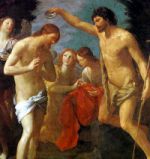Catholic Dictionary
Find accurate definitions of over 5,000 Catholic terms and phrases (including abbreviations). Based on Fr. John Hardon's Modern Catholic Dictionary, © Eternal Life. Used with permission.
Random Term from the Dictionary:
THEOLOGY
Literally "the science of God," used by the Stoics in the third century B.C. to describe a reasoned analysis of the deity. Earlier uses were more naturalistic. Thus, Plato in the Republic and Aristotle in his Metaphysics called Homer, Hesiod, and Orpheus theologians because they first determined the genealogies and attributes of the gods.
With the advent of Christianity, theology came to mean what its etymolgy suggested, and was defined by St. Augustine as "reasoning or discourse about the divinity." Through the patristic age to the period of The Schoolmen, this remained the acceptable generic meaning. Peter Abelard (1079-1142) is credited with first having used the term in its modern connotation. St. Thomas Aquinas (1225-74) defended theology as a science because it investigates the contents of belief by means of reason enlightened by faith (fides quaerens intellectum), in order to acquire a deeper understanding or revelation. He also distinguished theology proper from "natural theology" or what Gottfried Leibniz later called "theolodicy," which studies God as knowable by reason alone and independent of divine authority. Since the thirteenth century the term has been applied to the whole study of revealed truth and gradually replaced its rival synonyms. (Etym. Latin theologia; from Greek: theo, God + -logia, knowledge.)






